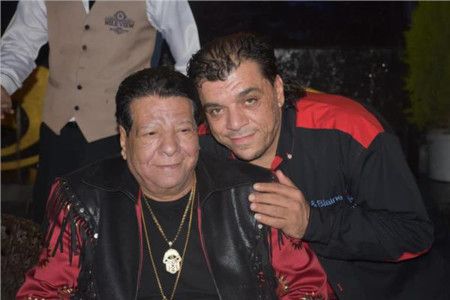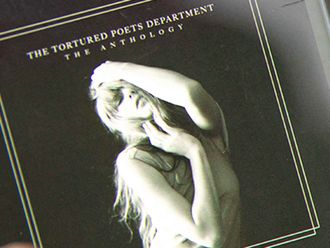
Egyptian popular singer Shabaan Abdul Rehim, most famous for his song ‘I Hate Israel’, died on Tuesday in Cairo, his family said. He was 62.
Abdul Rehim, nicknamed Shabola, died of a heart attack at a military hospital in the southern Cairo suburb of Maadi, local media said.
Born in the Cairo working-class district of Al Sharabia on March 15, 1957, Abdul Rehim, whose real name was Qassim, was a worker at a modest clean laundry store in his area. He started his artistic career as a Shaabi or folksy entertainer singing to friends and performing at street wedding parties.
In the late 1980s, his debut album captured attention mainly due to its main song ‘Ahmad Helmy’s Married Aida’ inspired by famous Cairo squares. Later, he shifted to political themes in his songs.
Abdul Rehim’s big break came in 2000 when he released his song ‘I Hate Israel’ in 2000 inspired by the then Palestinian Intifada against Israeli occupation. The song proved a best seller that earned him a wide fame across the Arab world.
The hit was seen as reflecting anti-Israeli sentiment in Egypt, the first Arab country to sign a peace treaty with Israel in 1979.
“I hate Israel, and I would say so if I was asked to,
“Even if I’ll be killed, or go into prison,” the lyrics of the song goes.
Israeli loyalists in the US accused the Egyptian singer of anti-Semitism. In 2008, Abdul Rehim reportedly lost a contract to appear in a McDonald advertisement to promote McFalafel sandwiches after protests from pro-Israeli groups in the US.
The same song extols Egypt’s then foreign minister Amr Moussa, known for his vociferous criticism of Israel.

“Shaaban Abdul Rehim was a unique phenomenon,” Moussa said in a tribute to the late singer on Tuesday. “He had his personality that he had imposed on the way of singing and the art community. He also walked into politics,” Moussa told private newspaper Al Youm Al Saba.
“He was a typical good Egyptian, who evolved a genre of art, which I consider part of the Egyptian art whether you like it or not,” the ex-Arab League head added.
Abdul Rehim appealed mostly to the working-class people due to the simple lyrics of his songs. They were inspired by the vernacular one can hear on Egypt’s streets. His output echoed milestone political events in his homeland and the Arab world.
In 2013, he released another hit song titled ‘I Love Al Sissi’, after Egypt’s then defence minister led the army’s ouster of president Mohammad Mursi of the Muslim Brotherhood following massive protests against the Islamist group’s divisive rule. Al Sissi has been Egypt’s president since 2014.
Abdul Rehim also promoted anti-smoking campaigns in his hit ‘Ill Quit Cigarettes and Be a New Man’.
His trademark was wearing brightly coloured costumes and wrist bracelets as well as long necklaces.
He performed in several films and stage shows, mostly comedies including ‘A Citizen, A Detective and a Thief’ (2001), ‘A Peasant in the Congress’ (2002) and ‘The Most Honest Thief’ (2008).
He also hosted some TV shows on local Egyptian stations. Despite his wide popularity, intellectuals mostly dismissed his output as below the par and even vulgar.
Abdul Rehim last performed in November at a Saudi concert as part of the Riyadh Festival where he appeared sitting in a wheelchair due to a leg fracture sustained from a fall on the floor in his house.
He was to be buried later Tuesday in his hometown in Qaliubia, north of Cairo.














